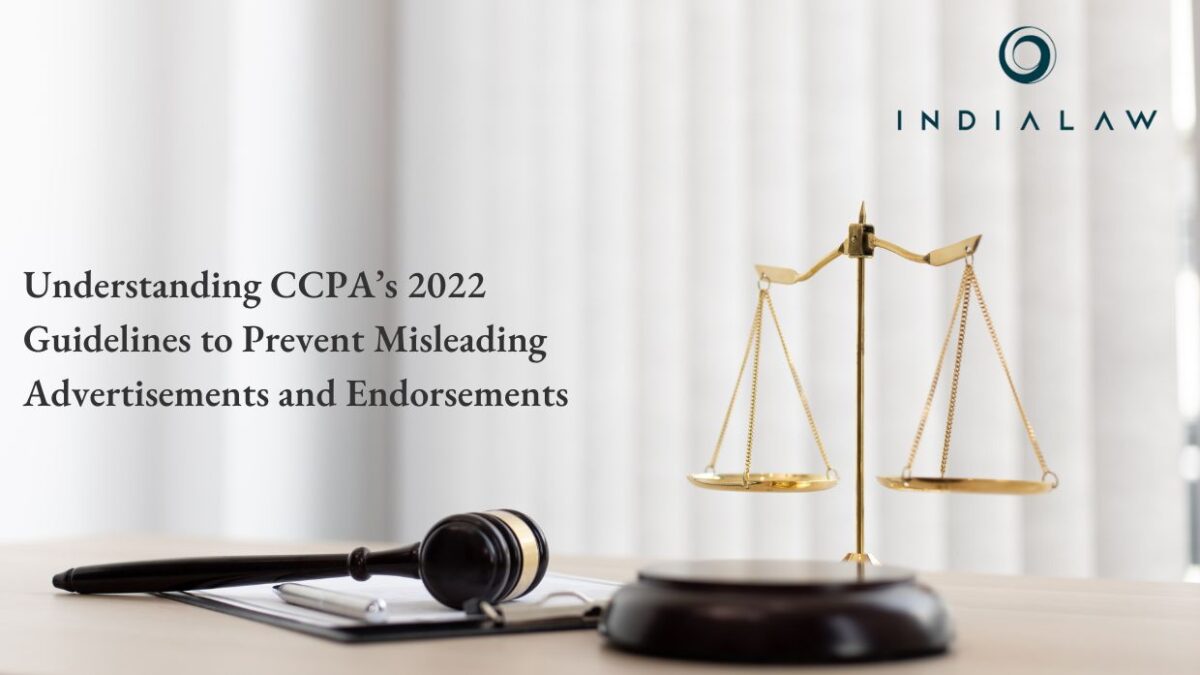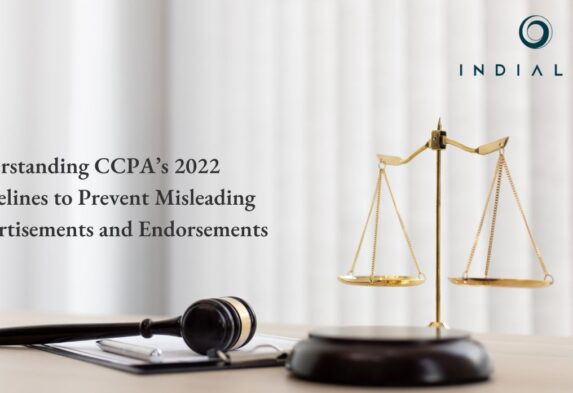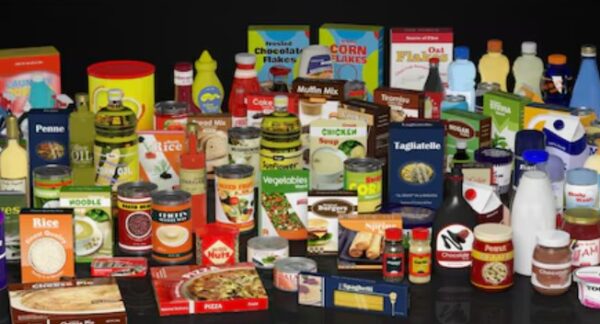Understanding CCPA’s 2022 Guidelines to Prevent Misleading Advertisements and Endorsements


In June 2022, the Central Consumer Protection Authority (CCPA) introduced new guidelines to regulate advertisements and endorsements in India. These guidelines aim to ensure that advertisements are truthful, transparent, and do not mislead consumers. Let’s break down these guidelines to understand what they mean for advertisers, endorsers, and consumers.
Table of Contents
Background and Purpose
The guidelines were issued under Section 18 of the Consumer Protection Act, 2019, which empowers the CCPA to protect consumers from unfair trade practices and misleading ads. Advertisements play a significant role in influencing consumer choices, and misleading ads can harm trust and lead to unfair practices. These new rules are meant to safeguard consumers and hold advertisers accountable.
Key Definitions
The guidelines define key terms to ensure clarity:
- Advertiser: A person or organization that creates and publishes advertisements to promote goods or services.
- Advertising Agency: A company that helps create and produce advertisements.
- Bait Advertisement: Ads offering products or services at low prices to attract customers but failing to deliver as promised.
- Surrogate Advertisement: Ads that indirectly promote banned products like alcohol or tobacco by using brand names associated with them.
- Endorser: A person, group, or organization that publicly supports or promotes a product or service in advertisements.
Who Do These Guidelines Apply To?
The rules apply to:
- All Advertisements: No matter the format or medium (print, digital, TV, etc.).
- All Stakeholders: This includes advertisers, manufacturers, service providers, advertising agencies, and endorsers.
Key Provisions
1. Non-Misleading and Honest Advertisements
- Advertisements must be truthful and not exaggerate the quality, performance, or usefulness of products or services.
- Ads should not mislead consumers about legal rights or create false fears to encourage purchases.
- All claims must follow existing laws and regulations.
2. Rules for Bait Advertisements
- Advertisers must have enough stock to meet expected demand before running ads for discounted products or services.
- Ads must clearly state if stocks are limited or if there are restrictions on availability.
3. No Surrogate Advertising
- Ads for banned products (e.g., alcohol, tobacco) cannot be disguised as ads for unrelated products.
- Using the same brand name, logo, or visual identity for prohibited products in other ads is not allowed.
However, there is an exception:
- If a brand or company name linked to a prohibited product is used in an advertisement for a legal product or service, it will not be considered a surrogate advertisement, provided the ad complies with all other rules.
- The advertisement must genuinely promote the legal product or service and must not mislead consumers into associating it with the prohibited product.
4. Free Claims in Advertisements
- Products cannot be labelled as “free” if consumers must pay hidden costs like packaging or delivery.
- Ads must clearly explain any conditions to claim free offers.
5. Advertisements Targeted at Children
- Ads must not exploit children’s inexperience or encourage unsafe behaviour.
- Ads cannot exaggerate a product’s benefits or mislead children into thinking it is better than natural or traditional alternatives.
- Promotions for junk food or harmful products, like tobacco and alcohol, cannot target children or be aired during children’s programs.
6. Advertisements for Prohibited Products
- Ads for products or services that are illegal to sell, distribute, or advertise are strictly prohibited.
7. Disclaimers in Ads
- Disclaimers must be clear, in the same language as the advertisement, and visible enough to be understood easily.
- They should not contradict the main claims of the advertisement.
8. Duties of Advertisers and Agencies
- Advertisers must ensure all claims are accurate and can be proven if required.
- Ads should not mislead consumers through omissions or exaggerated claims.
- Advertisements must not abuse consumers’ trust or take advantage of their lack of knowledge.
9. Endorsements
- Endorsers must genuinely believe in the products or services they promote and have enough knowledge or experience to make valid claims.
- Endorsements by foreign professionals are not allowed in areas where Indian professionals are barred from making endorsements.
10. Disclosure of Connections
- If there is a financial or material relationship between the endorser and the advertiser, it must be clearly disclosed to the audience.
Why These Guidelines Matter
These rules aim to make advertisements fair and transparent, benefiting both consumers and ethical businesses. Consumers are better protected from false claims, and honest advertisers are given a level playing field.
Conclusion
The CCPA’s 2022 Guidelines are a much-needed step to regulate the advertisement ecosystem in India. They promote responsible marketing practices, protect consumers from deceptive claims, and build trust between brands and their customers. Advertisers, endorsers, and agencies must now follow these rules to ensure ethical advertising and maintain the integrity of their promotions. This is a win-win for consumers and the market.
For further details write to contact@indialaw.in




